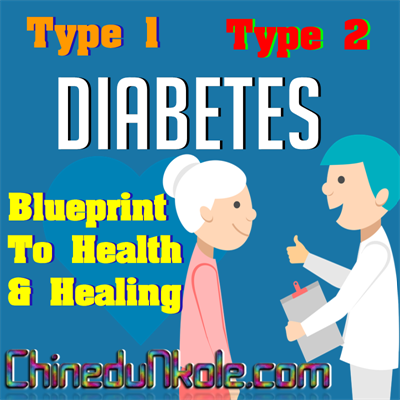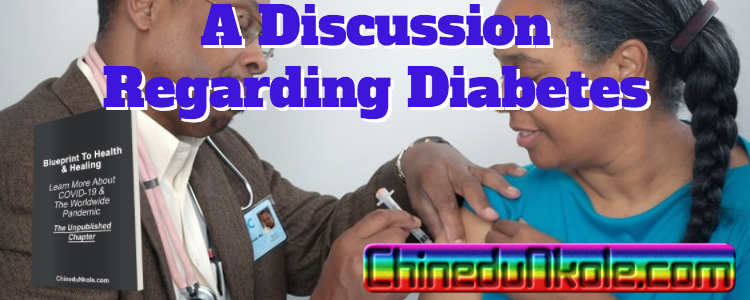Diabetes is a disease that occurs when your blood glucose, a type of sugar in the blood, is too high.
Blood glucose is your main source of energy and comes from the food you eat. Insulin, a hormone made by the pancreas, helps glucose from food get into your cells to be used for energy. There are 2 major Types of diabetes:
Type 1 Diabetes Mellitus :
… also previously known as insulin dependent diabetes IDDM or juvenile diabetes, presents predominantly in young patients. In type 1 diabetes, very little or no insulin is produced by the pancreas. As a result, patients with type 1 diabetes will require exogenous insulin (external insulin) to control their blood glucose.
The islets of Langerhans are responsible for the endocrine function of the pancreas. Each islet contains beta, alpha, and delta cells that are responsible for the secretion of pancreatic hormones. Beta cells secrete insulin, the hormone that plays an important role in regulating glucose metabolism. Type 1 diabetes is caused by an autoimmune response that attack the beta cells of the pancreas.
… previously used to describe Type 1 DM are no longer popular because we are seeing more type 2 patients having to go on insulin for better glycemic control. Also type 1 DM can present late in adult as LADA-Latent Autoimmune Diabetes of Adult.
Type 2 Diabetes Mellitus :
also previously known as Non-Insulin Dependent diabetes (NIDDM) is more common than type 1 DM a nd is mostly due to insulin receptor resistance. My book : Blueprint to health and healing, gives some practical steps that will counter insulin receptor resistance. Again the term Non Insulin dependent diabetes Mellitus (NIDDM) is obsolete as many people with type 2 DM are requiring insulin for better glycaemic control.
Type 2 Diabetes Mellitus mostly present in adults, however, it can rarely present in the young as MODY-Maturity onset diabetes of the young. Another form of diabetes, known as gestational diabetes occurs during pregnancy. Symptoms of Diabetes : Most of the symptoms of diabetes are due to : –
One : The osmotic properties of glucose
… too much glucose in the blood (hyperglycaemia) causes osmotic diuresis, resulting in : Frequent urination (polyuria, nocturia) Excessive thirst (polydipsia) Dry skin from dehydration which can cause patches of dark skin.
Two : Inability of the cells to utilise the glucose in the blood ...
… (Starvation in the midst of plenty) due to either the absence of insulin in the case of Type 1 Diabetes Mellitus or the resistance of insulin receptors to available insulin, in the case of Type 2 Diabetes Mellitus : Always feeling hungry (polyphagia) Feeling very tired. Weightloss (unintentional) despite eating a lot.
Three : Hypercoagulable state (abnormally increased tendency towards blood clotting (Coagulation).
Slow healing of cuts and wounds-blood carries oxygen and nutrients to the cells, oxygen and nutrients eg Vitamin C are needed for wound healing. The hypercoagulable state in diabetes compromises blood supply to the tissues resulting in slow healing of cuts and ulcers. Tingling, numbness, or pain in the hands or feet.
COMPLICATIONS OF POORLY CONTROLLED DIABETES :
The injurious effects of hyperglycaemia if not mitigated result in :
MICROVASCULAR COMPLICATIONS
Retinopathy-damage to the retina of the eyes, which may cause vision impairment,
Nephropathy- impairment of kidney functions and Neuropathy-nerve damage which could lead to pain, numbness,
tingling in your hands, arms or feet(peripheral neuropathy)
MACROVASCULAR COMPLICATIONS
These include: Coronary artery disease that could lead to myocardial infarction(Heart attack), Stroke and Peripheral vascular (arterial) disease which in severe cases could lead to amputation of the affected limb.
Diabetes is a major disease burden on public health, the economy, and healthcare institutions and the practical steps suggested in my book (Blueprint To Health and Healing) will help reduce this burden.




